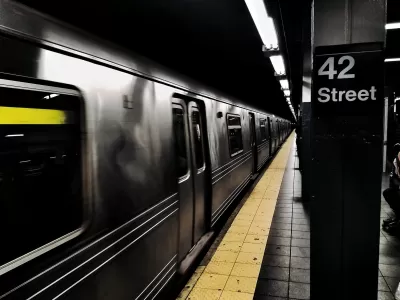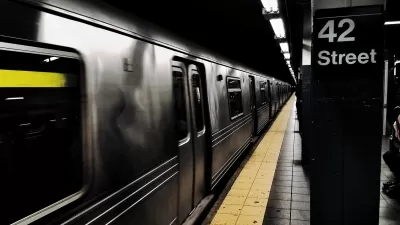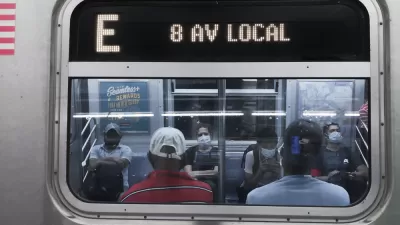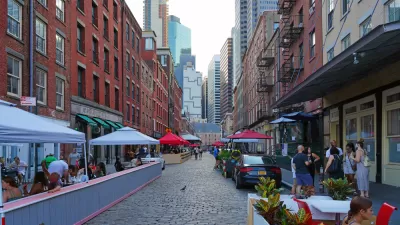Deep cleaning of the New York City subway and bus system is part of the Metropolitan Transportation Authority’s coronavirus response. But it is costly and time consuming, and the public health benefits are not entirely clear.

"The Metropolitan Transportation Authority, the nation’s largest public transit agency, began a rigorous cleaning process at the height of the pandemic as its workers were sickened by the virus and New Yorkers fled the system in record numbers," writes Danielle Muoio.
The cost for the cleanings is expected to reach $500 million a year. The process also involves shutting down the subway each night for four hours. Transit advocates say that money could be better spent, particularly since little evidence shows that cleaning surfaces helps prevent the spread of the coronavirus.
"[Danny] Pearlstein, who opposes the overnight subway shutdown, has said the state-run authority should focus more on increasing service — which would theoretically allow riders to spread out more easily since they could wait for less-crowded trains or buses," adds Muoio.
The MTA says that the cleaning regiment is part of a larger strategy to address the coronavirus and that clean vehicles and stations are helping to draw back riders. Health experts also say that much about the transmission of COVID-19 is unknown and such thorough cleaning could prove beneficial.
FULL STORY: MTA spending to clean trains may be largely cosmetic

Alabama: Trump Terminates Settlements for Black Communities Harmed By Raw Sewage
Trump deemed the landmark civil rights agreement “illegal DEI and environmental justice policy.”

Planetizen Federal Action Tracker
A weekly monitor of how Trump’s orders and actions are impacting planners and planning in America.

Why Should We Subsidize Public Transportation?
Many public transit agencies face financial stress due to rising costs, declining fare revenue, and declining subsidies. Transit advocates must provide a strong business case for increasing public transit funding.

Understanding Road Diets
An explainer from Momentum highlights the advantages of reducing vehicle lanes in favor of more bike, transit, and pedestrian infrastructure.

New California Law Regulates Warehouse Pollution
A new law tightens building and emissions regulations for large distribution warehouses to mitigate air pollution and traffic in surrounding communities.

Phoenix Announces Opening Date for Light Rail Extension
The South Central extension will connect South Phoenix to downtown and other major hubs starting on June 7.
Urban Design for Planners 1: Software Tools
This six-course series explores essential urban design concepts using open source software and equips planners with the tools they need to participate fully in the urban design process.
Planning for Universal Design
Learn the tools for implementing Universal Design in planning regulations.
Caltrans
Smith Gee Studio
Institute for Housing and Urban Development Studies (IHS)
City of Grandview
Harvard GSD Executive Education
Toledo-Lucas County Plan Commissions
Salt Lake City
NYU Wagner Graduate School of Public Service





























